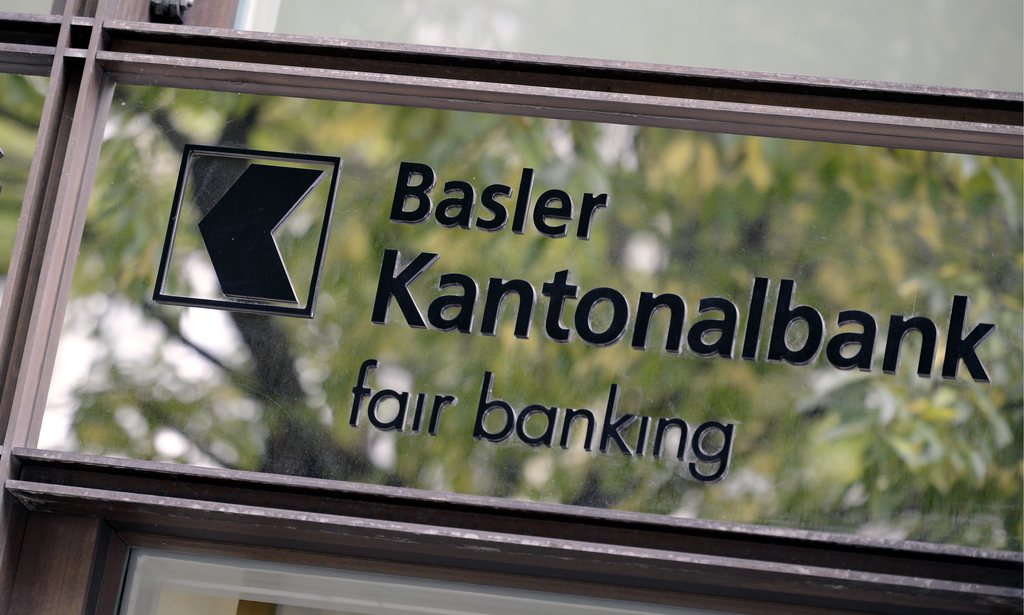Banks back plan to end US tax evasion row

Swiss banks are ready to pay hefty fines for sheltering United States tax fugitives under the terms of a new deal given the green light by the Swiss government on Wednesday.
While official details will remain thin on the ground until the US puts its signature to the agreement, both the cabinet and the Swiss Bankers Association (SBA) said the deal should finally settle past misdemeanors to the satisfaction of all parties without breaking Swiss law.
“The signing of the joint statement should enable Swiss banks to resolve the tax dispute with the United States,” the government said in a short statement.
The SBA hailed the agreement as the “final step towards a solution”, adding that “the protection of employees [threatened with criminal prosecution in the US] can now be afforded to the best possible extent.”
The Swiss Bank Employees Association also welcomed the deal as a sign that turbulence of the last fews years may be at an end. But the organisation added in a statement that it expected employees to receive protection against any legal backlashes from the US.
The agreement between the Swiss government and banks sidesteps the need for parliamentary approval, a crucial point given the rejection by both houses of parliament in June of the so-called Lex USA deal that promised to find an earlier solution.
According to the US Justice Department, the total penalties expected to be levied against banks under the agreement will amount to hundreds of millions and possible over a billion dollars.
In 2009, Switzerland’s biggest wealth manager, UBS, was fined $780 million after admitting to aiding and abetting US tax dodgers.
The following year, the Swiss government handed over nearly 4,500 names of UBS clients to the US authorities, effectively ending Swiss banking secrecy.
The US continued to target other Swiss banks suspected of helping tax cheats and of poaching US clients of UBS.
In January 2012, Switzerland’s oldest private bank, Wegelin, was forced to sell off its non-US wealth management business as it succumbed to a US criminal investigation.
A year later, the 272-year-old bank effectively ceased to function with its partners facing massive fines.
In April 2012, the Swiss government authorised a handful of banks to hand over details of US business dealings to the US authorities.
In June of this year the Swiss parliament rejected a government plan to extend the data transfer to other banks, including new information such as the leaver lists.
On July 3, 2013, the Swiss government nevertheless approved the new data transfer deal.
Media leaks
According to the Swiss newspaper Tages-Anzeiger and a journalists’ conference call with a senior US Justice Department official, banks will pay fines of between 20 and 50 per cent of the assets they helped clients hide from the US tax authorities under the agreement.
Penalties will increase for accounts opened after 2009, when the bank UBS reached a $780 million prosecution agreement with the US for having assisted tax evaders.
The deal will mainly affect around 100 banks that are under suspicion, but not investigation, by the US Department of Justice, several media outlets reported.
However, the handful of banks (around 14) currently under active investigation by US authorities will not be eligible for the deal. Those banks had been authorised by the Swiss government last year to hand over details of their US business activities to the US authorities, including names of employees.
That data handover was extended in July to include the names of other Swiss banks to which that US clients had transferred assets.
In June of this year Switzerland agreed on the terms of the US Foreign Account Tax Compliance Act (FATCA) that will force banks to name all US clients in future.
“Bad deal”
The five year long tax evasion dispute has already seen banking giant UBS pay a $780 million (CHF720 million) fine and hand over thousands of client names to the US and the collapse of Switzerland’s oldest private bank, Wegelin, under the weight of a US criminal investigation.
However, not everyone saw Wednesday’s proposed deal as the right answer to the problem. The centre-right Christian Democratic Party lambasted the agreement as a “tragedy”, saying that it was a worse deal than that sunk by parliament in June.
“Once again we have to bite the bullet and accept our responsibility as a repair workshop for the Swiss financial centre,” the party said in a statement.

In compliance with the JTI standards
More: SWI swissinfo.ch certified by the Journalism Trust Initiative











You can find an overview of ongoing debates with our journalists here . Please join us!
If you want to start a conversation about a topic raised in this article or want to report factual errors, email us at english@swissinfo.ch.